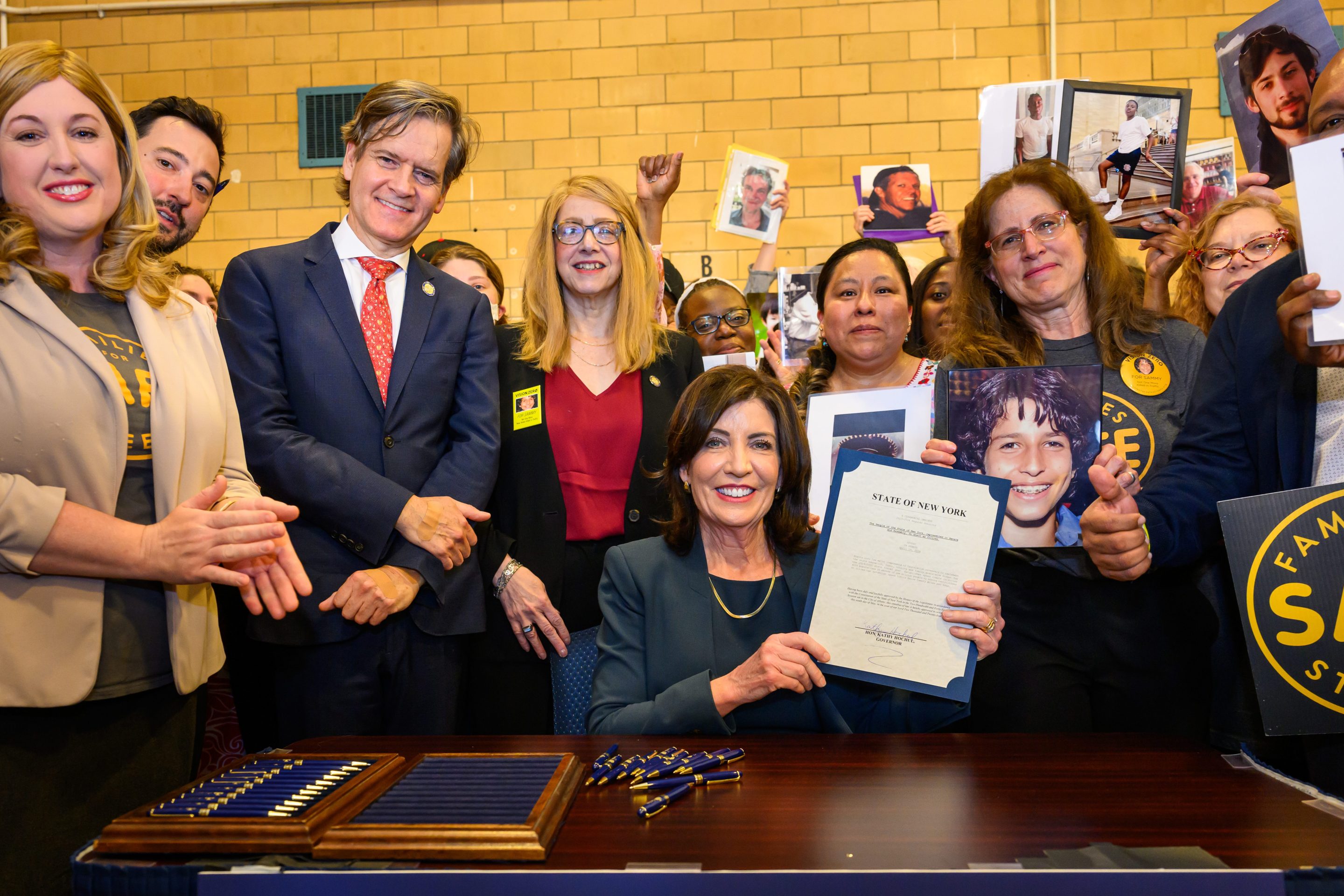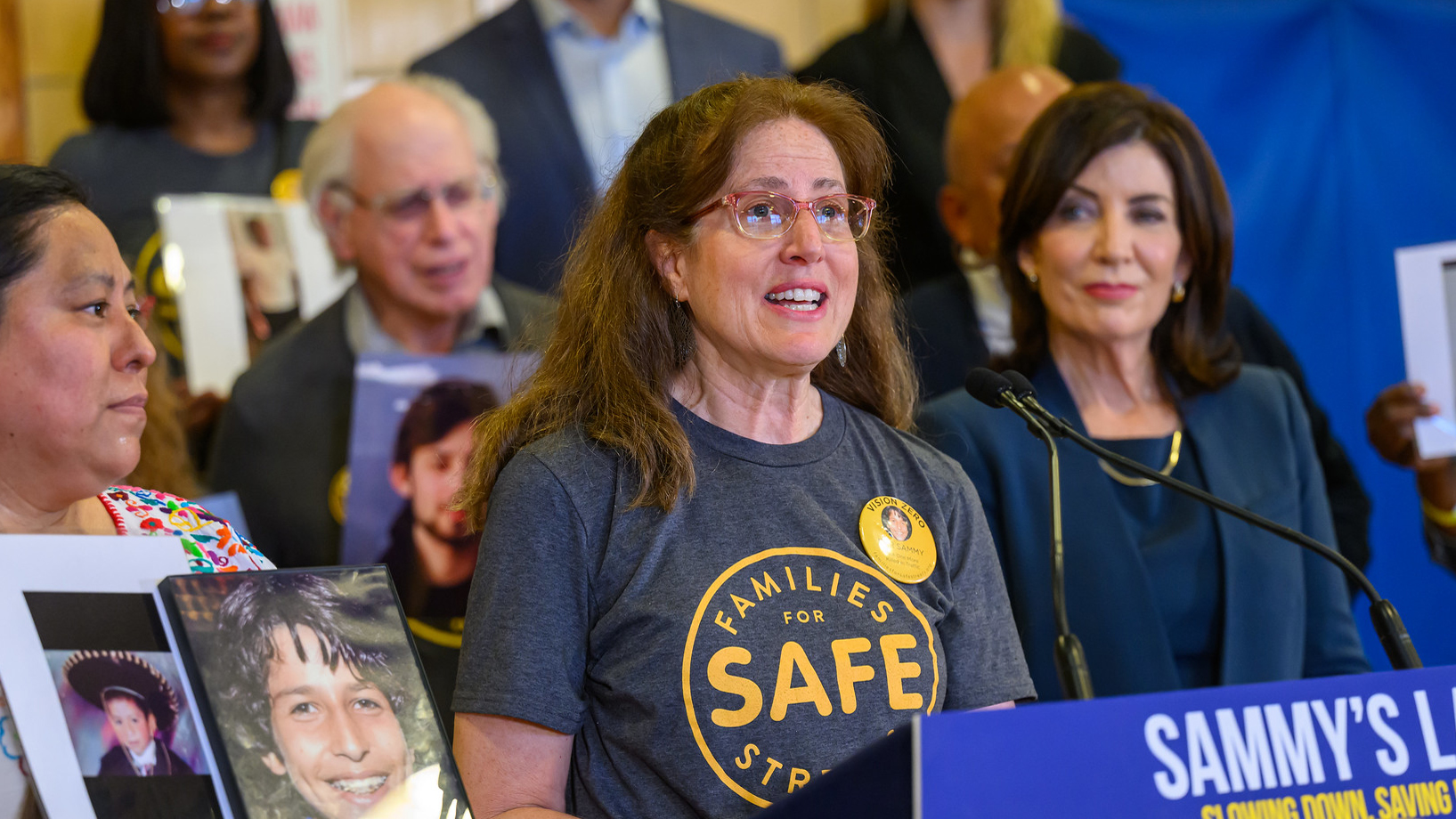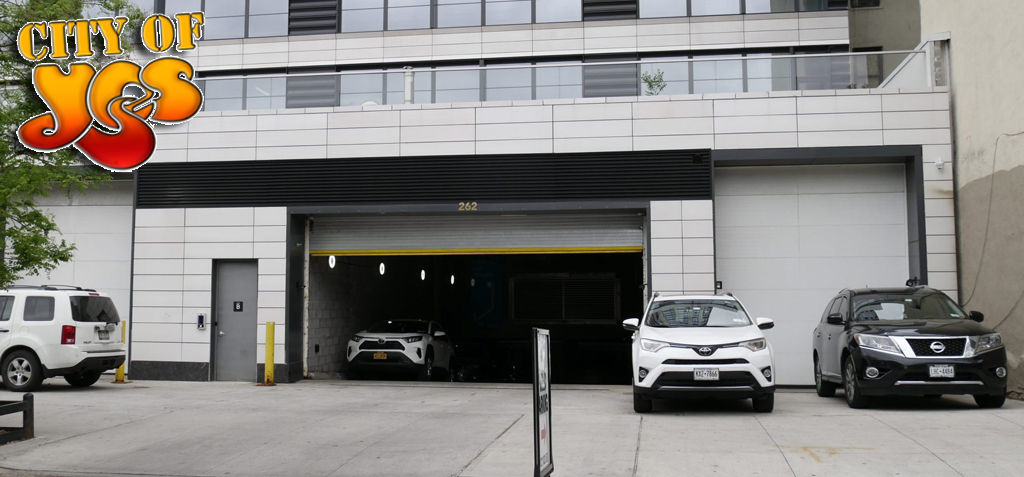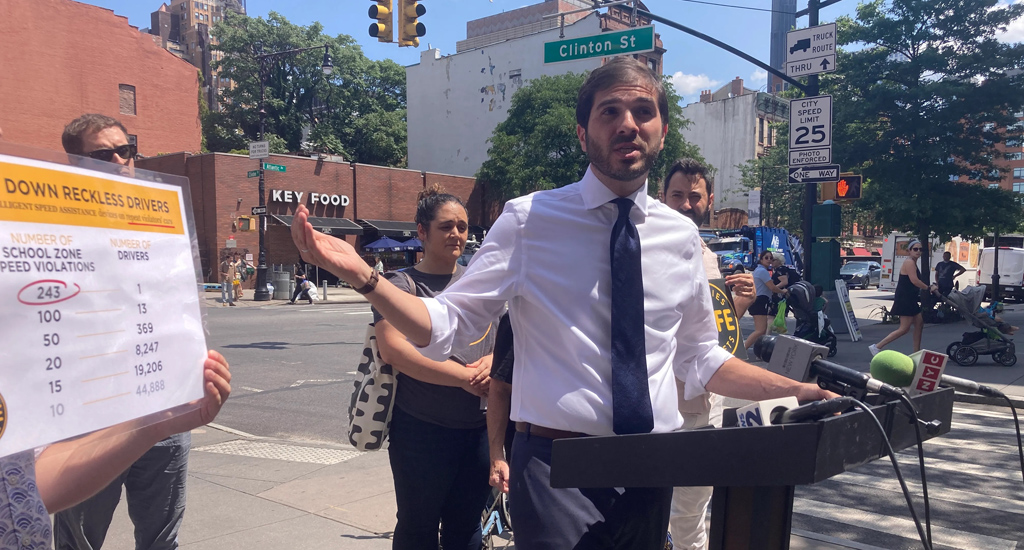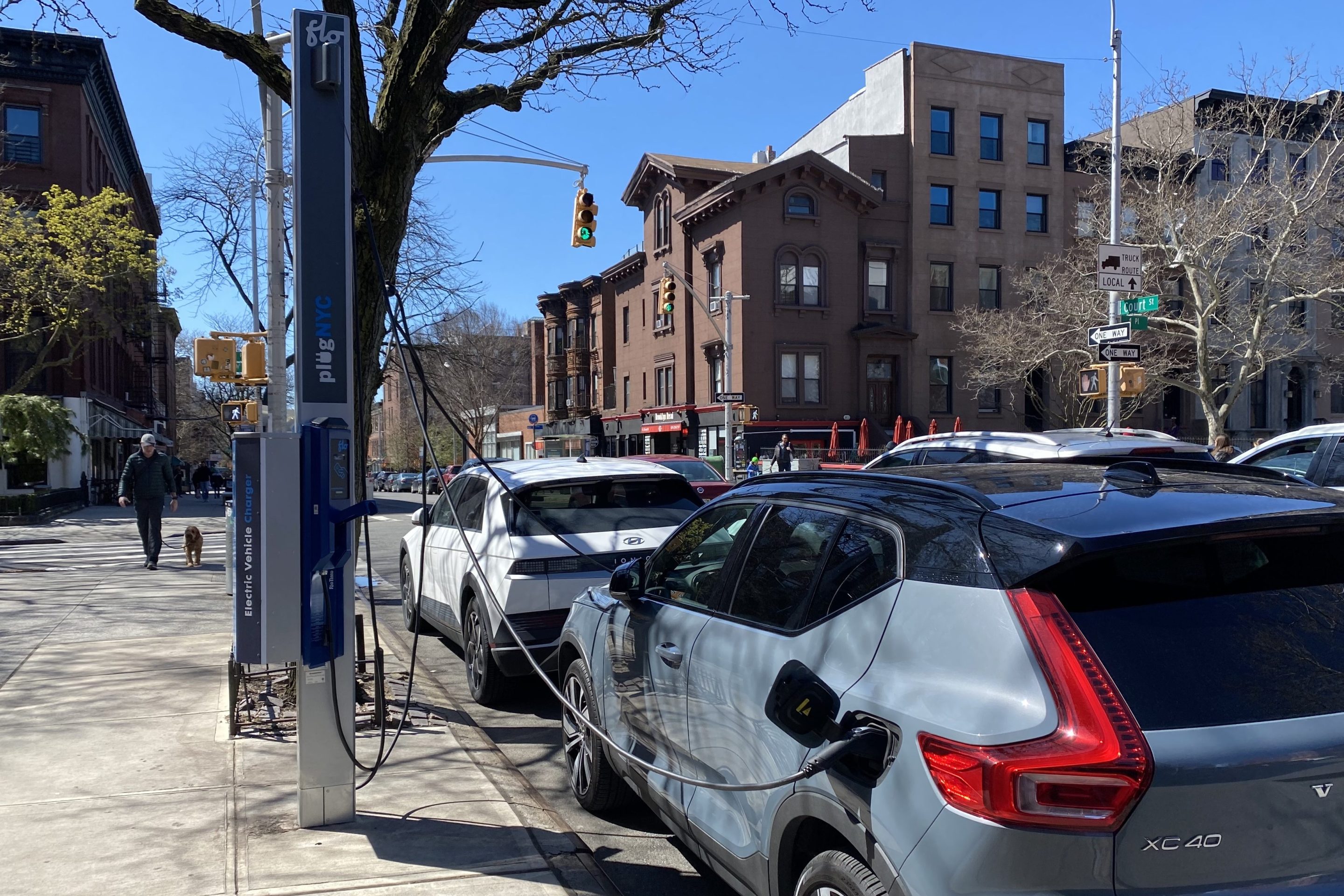
A growing number of mayors want to make big strides on bike policy, and they need smart advocates to help them do it.
Mayors Michael Nutter of Philadelphia, Bill Peduto of Pittsburgh, Jennifer Selin of Morgantown, and A.C. Wharton of Memphis addressed the opening session at the 2014 Pro Walk Pro Bike Pro Place conference, now underway in Pittsburgh. The mayors highlighted their own cities' efforts to create safer conditions for biking and walking, and shared their thoughts about how their cities have overcome key obstacles and how advocates can make an impact.
In all four cities, mayors called investment in walking and cycling infrastructure a smart long-term policy with numerous community benefits. "It's healthy, it's good for the economy and our citizens," said Philadelphia's Nutter. They each cited constructive partnerships with advocates, and intensive listening to community concerns, as keys to advancement. Selin of Morgantown said, "I enjoy bicycling, but I can't put it forth as my own agenda. It has to come from the community."
Each mayor also highlighted how their bike networks will bridge social divides within their cities, and they pointed out that city mayors, unlike legislators, are obliged to make things work: "We're the government of last resort," said Memphis's Wharton. "We can't pass our responsibilities down to anyone else."
Martha Roskowski from PeopleForBikes led off by introducing Isabella, a fictional 12-year-old girl. She urged planners and advocates in the audience to design bikeways that people like Isabella would enjoy -- and highlighted how protected bike lanes have multiplied across the country. Yet in city after city, advocates alone can't build new bike networks. "The single determinant" that best ensures success, Roskowski said, "is a really great mayor."
Mayor Selin cited progress underway in Morgantown, a college town of 30,000 residents about 70 miles south of Pittsburgh in West Virginia. In mountainous areas like West Virginia, she said, "we need all the connections," namely "a pedestrian bridge across a creek, so that two neighborhoods can feed into our 50-mile rail-trail system" and into downtown. Morgantown will also begin construction soon on its first protected bicycle climbing lane, another critical infrastructure link in the mountains.
Mayor Wharton said that in Memphis, "the miracle is not how much we've done, but the fact that we've done it at all." One impetus for investing in bicycling in Memphis, he continued, was that "quite frankly, we had a chip on our shoulder. Every table that came along: worst, worst, worst." Bike infrastructure presented itself as a "healthy, socially liberating" solution that would be "good for our cities, good for our folks -- that's all we need to know," he said.
Wharton offered examples of how bike facilities intentionally bridge divides in his city. He said that "we wanted to make sure that this was for everybody. When we did the longest stretches of lanes, they were in predominantly black neighborhoods. We wanted to send that message: 'This was for everybody, in every neighborhood. When you do get ready to bike, it'll be there.'"
He also urged a reform of how the federal and state governments approach funding for bike infrastructure. "We should not have to engage in this fiction" about making bicycle and pedestrian improvements in order to improve air quality, he said. "Can't we simply have funding for bike lanes because they're a doggone good thing to do?"
In Philadelphia, Mayor Nutter's street safety policies are "starting to drive down both vehicle and pedestrian crashes, as well as cycling crashes," he said. While "there was some resistance at the beginning about bike lanes, we said 'We're resurfacing the streets and we're just putting a few extra stripes down.'" A network is emerging from that method. He pointed out that in Philadelphia, "if you have a bike-share program, it can't just be a downtown program," and said that in a national first, "you will not have to have a credit card to use the bike-share system in Philadelphia."
Nutter added that, even though he took office as the economy fell into recession, he wanted to address bicycling as part of a suite of policies to invest in the city's long-term future: "bike lanes, recycling, sustainability, new plans for the city -- all are part of what helped us recover from the worst recession since the Great Depression." In particular, he says that bike facilities are "addressing the needs of a group of constituents who are here now, and others to come," particularly the Millennial residents who have flocked to Philadelphia.
Pittsburgh's Mayor Bill Peduto promised that his city, after sitting on the sidelines for years, will "leapfrog" others in the bike-friendliest rankings. To tie together the city's extensive riverfront trails, he promises "a superhighway system so you can get between them safely," including the city's newly-inaugurated protected bike lanes. The most visible of those lanes is right downtown, where the "crazy grid system was last updated in the 1950s, when the primary mode was the automobile. Now, imagine doing anything the same way you did things in the 1950s." Instead, Peduto said, cities have to adapt to a new era "when people have the ability to live and work wherever they want," and where "you have to provide the necessities in order to be able to keep them" -- necessities like safe bikeways.
Peduto cited the emerging consensus about how to design great bikeways, but said, "The trade-offs aren't about the infrastructure. It comes to how far can we push it before people start going in the streets with pitchforks and torches… It was like ripping that bandage off quick. We wanted to show it off and let people see it, so that we could continue to build it."
The mayors all agreed that their job requires a thick skin. Nutter said that "if you want people to love you every day, this is the wrong business. You should go work in a pet shop." After Peduto pointed out that "the most love and hate Twitter feeds I have received have been in this past week," as the city's first protected bike lanes were installed, Nutter offered some advice for Peduto's staff. "Have the mayor reading less of the Twitter comments, because he will go insane," he said.
Instead, the mayors urged advocates to take on more of the front-line responses to win the public-relations war on behalf of better cycling and walking -- and to engage constructively to help make city officials' jobs easier.
Selin had some advice about how advocates should try to get things done. "The person who has a solution, a suggestion, a grant you can apply for -- those people get what they want." She also urged follow-through after the first wave of progress on infrastructure. "If there isn't some sort of push from the community, these improvements kind of fall by the wayside," she said. "We can have great plans, but to get them into place we need to have people pushing constantly."
Nutter defined a great advocate as someone "who engages and elevates the discussion so that it's hard for people to say no. The changes you're talking about are transformational." And Peduto urged advocates to get involved early in the political process, saying "you need to know who your candidates are before they are in office, not change their minds once they're in office."
